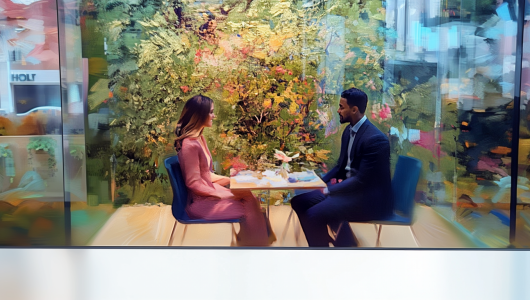Interviewing
I’ll tell you a Recruitment Agency secret. It’s one that is widely known and accepted, but rarely articulated: Agencies don’t mind clients who don’t interview very well. In fact, in some cases, they love them, because they will often make bad hires, and bad hires often don’t work out, and need replacing, and that means another fee. To be fair to agencies, it’s very hard to be critical of a client; we are service providers, not teachers, so even if we are aware of any issue, it’s difficult to do something about it. Clients are hard to find, and easy to lose.
Interviewing is a minefield, yet it is often taken for granted. Employers often place far too much emphasis on whether they like the applicant on a personal level, and often don’t consider that nearly everyone is on their very best behaviour in an interview scenario. You’re getting a filtered, and, to some degree, an unrealistic version of the person sitting in front of you. Consider the cliched question –
What is your biggest weakness?
– and ask yourself, does anyone ever give an honest answer here? Because the reply –
I regularly get drunk over the weekend, and come Monday morning, I am tetchy, unreasonable and could start an argument in an empty room.
– is never going to happen, is it? And in fact, if you have ever heard the following answer (or a version of it) –
– I’m a perfectionist who sets myself unattainable standards.
– and you believed it, well, I have some magic beans that I can sell you at a very reasonable price.

We are going to look at what psychology says about interviewing and see if it is possible that it might make sense to take a step back an consider if your interview technique is really doing you any favours.
A bad hire, at best, is an inconvenience. At worst, the ramifications can be calamitous – wasting money and time, arresting development and progress, causing complicated HR and legal issues with a big portion of stress and bad feeling thrown in. It’s probably useful for anyone involved in the hiring and recruitment process to reconsider their approach to interviewing.
System one and two thinking
Removing the bias
If you haven’t had the dubious pleasure of studying Psychology formally, you might not be aware that as a science, it is still very new, and still developing all the time. This means that theories and perspectives within the academic discipline are subject to change, so pervasive attitudes and ideas can be swept away as alternative thinking and evidence comes into play.
It is widely believed now that human beings have two mechanisms that come into play when we think: system one and system two thinking. System one is our animal side coming through – it is instantaneous, what we often think of as instinct, and is often an emotional, chemical response. There is nothing inherently wrong with it, and indeed, it can be very useful in the right context, but it doesn’t rely on logic and circumspection. System two thinking is both conscious and logical. It takes longer, and it is perhaps unique to human beings. In an interview setting, both systems will come into play, and both play a vital role, but it is important that we place the appropriate amount of importance on our immediate “gut feeling”, because that is system one thinking all the way. Remember, people are on their best behaviour when they are being interviewed, and also remember that you are not trying to fill a vacancy for a friend. This last point is really important, allowing the fact that you took to someone on a personal level to have a strong affect on your decision making is the very definition of style over substance. When it comes to considering whether a stranger is a good fit to fulfil a vital function, substance is well and truly where it is at.
There are many cautionary tales to be found. Interviewers recognising similar traits to themselves, seeing something of the interviewee in themselves, enjoying the transparency and honesty in answers (even if they were a strong indication of unsuitability), looking past obvious deficiencies in skills and experience all because they feel they may have met a kindred spirit, someone that they could really get along with. This is not they key here, it’s an added bonus.

Removing the bias
Is face to face interviewing redundant?
It is perfectly natural to have biases in any given context, and interviewing is no different. Broadly speaking, there are two types of bias: unconscious and conscious. The conscious ones are easier to deal with, and anyone worth their salt who finds themselves in the position of interviewer should be aware of their predispositions to certain people-oriented factors. Whether the person in question chooses to ignore these biases, well, that’s not going to be solved here, it’s a conscious thought process that is ultimately down to the conscience/self-awareness of this person. The unconscious ones though – they can trip us up all too easily, and this can in turn lead to some awkward introspection.
The most obvious biases are those borne out of some form of prejudice, but prejudice can cut both ways, it doesn’t necessarily mean that the perception of a person is negative, it can be positive too, and can affect decision making just as much. Is this an example of a conscious or unconscious bias? That’s not easy to answer, and it really depends on the levels of self-awareness in an individual. As a general rule of thumb for life, (not just hiring!) it is useful and enlightening for anyone to consider if they are likely to be positively or negatively disposed to someone else based on something as arbitrary as a demographic difference (or, indeed, similarity). Which leads us on to affinity bias.
We are likely to be far more positively disposed towards people that we perceive as being, on some level, a kindred spirit. It might be that the other person attended the same university, or they support the same sports team. We are (usually) social creatures, so we enjoy meeting people that we share interests with. Is that relevant to their suitability to do a job? You don’t need me to answer that one, do you?
Another interesting bias that can have a huge impact on the outcome of an interview is what is known as anchoring bias. A mis-step early in an interview is much more likely to affect the final decision than one that happens later on. We have a natural tendency to place too much weight (anchor) on information received early in a process. Nervous people can say silly things, and a silly thing said early on tends to have a far greater impact than a silly thing said later on.
There are literally hundreds of biases that affect the way we think and the decisions that we make. Not all are relevant here, and if all were listed here, well, you’d get bored way before the list reached its end. It might be worth a bit of research over a coffee one morning, though.
We all must accept that to be human is to carry biases with us. There is no avoiding them, not matter how self-aware, how self-actualised, how clever we become. We can however mitigate the impact they have, to varying degrees. If your job is involved in making hiring decisions, then it is a very useful exercise to spend some time working out where some irrationality may be affecting the decisions that you make.

Is face to face interviewing redundant?
Current psychological thinking suggests that face to face interviews – at least as a way of commencing the process – are not actually a very effective tool in the recruitment mechanism. That’s quite the revelation, but there is evidence to suggest that this is indeed the case. However, it is hardly a huge surprise, when we consider all the pitfalls of meeting with someone and relying on our inevitably human perceptions when making hiring decisions.
A big issue, according to that same psychological thinking, is that we have a very human tendency to rely too heavily on our own subjective feelings, and this is amplified if we are successful in our careers. Being a successful businessperson, for example, can lead us into placing too much faith in our ability to judge the character of the person that we are considering hiring. If we consider this logically, it makes sense, although intuitively, we might rally against it. The way to counter this is to try and ensure that we place more emphasis on the most salient information, and less on the more subjective judgements we make on a person. Concentrate on skills and experience, and keep this the focus of the conversation.
And what is your interview process? Is this something that has evolved over time without much of a thought process? It might be worth considering a change. If your first meaningful contact with an interviewee is when you meet them, then you might be at a disadvantage if current thinking is correct.
If you use the same process for every role, then it could be helpful to make a change here. For example, if you are looking for a salesperson, why not speak with them on the phone first, and put them under a little pressure with some direct questioning. Anybody who is an effective sales person should be able to think quickly on their feet and should be able to handle a few difficult questions, and as the interviewer the dynamic on the phone is different, it’s less personal and confrontational, allowing more leeway that you might have in a face to face scenario. Such a tactic, however, would be entirely inappropriate if you were interviewing for a junior administration position, and if you don’t understand that, then I wouldn’t want to work for you.

Take-aways
If you participate in the interview process in your job, the recommendation here is that you give more weight to system two thinking, and embrace your dispassionate, logical side. Consider interview processes in the past, and look at failures as well as successes. Understand that we are all hilariously human, and that there is no escaping that, but at the same time, being considered, placing less emphasis on something as vague as a gut feeling and keeping control of the interview so that you concentrate on what is really important – skills, experiences, the value that a person will bring with them – rather than what you have in common with a person on a personal level. This isn’t very important at all but will have a distinct impact on your thinking if you allow it to. Consider the biases that you bring to any interaction with strangers, and try to understand how they may adversely affect your decision making.
There’s a big old internet out there, and whilst it is understandable that you have faith in your ability to judge the character of a person in an artificial, forced situation where no-one behaves completely naturally, the chances are this ability is flawed. Do some research, maybe consider a course or two. It’s just a few presses of plastic buttons away.
Think about how you interview, and why you interview like that, and consider mixing it up. Think about developing the process away from the traditional face to face scenario because the science suggests right now that this isn’t a very effective way of interviewing. Nobody is seriously suggesting that a decision is made without meeting a person, but that we perhaps give too much weight to this part of the process.
So, consider making some changes, especially if you have made a few unsuccessful hires recently. Sometimes when we are busy and strung out, we don’t feel like we have the opportunity to take a step back, but bad hires…everyone loses, and then you have to do the whole thing over again, and you were busy enough to start with, weren’t you?
We’re i-Recruit, and we want you to make good hiring decisions.
